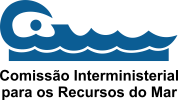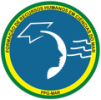WHAT IS THE O2?
The O2 is an educational project, involving formal and non-formal education, to promote ocean literacy, that is, understanding the role of the ocean in our lives and the influence of our actions on the ocean. Contributing to the formation of a Generation Ocean, this initiative aligns with the UN Decade of Ocean Science for Sustainable Development (2021 – 2030) and actions to achieve the Sustainable Development Goals of the UN 2030 Agenda. At O2, the diversity of participants and products demonstrates the Brazilian potential to address the issue of ocean sustainability, whether we are close to or far from the sea and regardless of our age or school level.
From the local to the global, the Ocean Olympics works with scientific concepts, pedagogical and cultural activities and local realities in a proactive, innovative, inter- and transdisciplinary way. By stimulating and expanding the visibility of education and socio-environmental actions in all social and geographic realities, near or far from the sea, O2 is an opportunity for collaborative learning and positive transformation of education.
It is carried out by the Maré de Ciência Program of the Federal University of São Paulo (Unifesp), the Ministry of Science, Technology and Innovations of Brazil, and UNESCO, with the support of the Brazilian National Council for Scientific and Technological Development (CNPq), and with the collaboration with the EUceano project, the Interministerial Commission for the Resources of the Sea and the All-Atlantic Blue Schools Network. Now, we will expand internationally with new partnerships. Throughout the process, we will update this open call with the mention of the new partnerships.
WHO CAN PARTICIPATE?
The O2 is for everyone and with everyone, so the whole of society can participate! Participation in O2 can be carried out by individuals, institutions that are part of the formal education system or institutions that promote non-formal teaching spaces. Therefore, anyone interested and of any age, even if not linked to educational institutions, can participate in any of the modalities offered.
HOW DOES THE O2 WORK?
The Ocean Olympics (O2) structure is based on cross-cutting modalities and themes.
There are three modalities in which ocean literacy is the main focus:
- Knowledge: individual participation for people over 8 years old through a multiple-choice thematic test. The test format can be online or in person.
- Socio-environmental project: individual or group participation for all ages. Projects must be original, focused on ocean literacy and the relationship between human beings and the ocean. The final product, containing the actions developed and their results, must be presented in digital format.
- Artistic, cultural and/or technological production: individual or group participation for all ages. The productions must be authorial, original and focused on ocean literacy. The final product must be delivered in digital format.
In 2023, four cross-cutting themes will be present in the knowledge test and the inclusion of one or more of them is optional in the works on the Socio-environmental project and Artistic, cultural and/or technological production modalities:
- Women in Science: promotion of girls, young people and women for careers in education, citizenship, science, technology and innovation, fostering gender equity, achieving institutional guidelines and the Sustainable Development Goals (SDGs) defined in the 2030 Agenda.
- Climate Change: O2 2023 wants to deepen the discussion on climate change considering the Essential Principle 3 of ocean literacy: “the ocean exerts an important influence on the climate”.
- Basic Sciences for Sustainable Development: this is the theme of the National Science and Technology Week of the Ministry of Science, Technology and Innovation of Brazil for 2023, which reinforces the relevance of basic sciences to achieve the Sustainable Development Goals (SDGs) of the United Nations (UN).
- Polar regions: O2 wants to promote the importance of the polar regions and their relationship with the ocean. These regions are being affected at high speed by climate change, which can influence the rest of the world. We especially invite you to prioritize the role of Antarctica in this dynamic.











